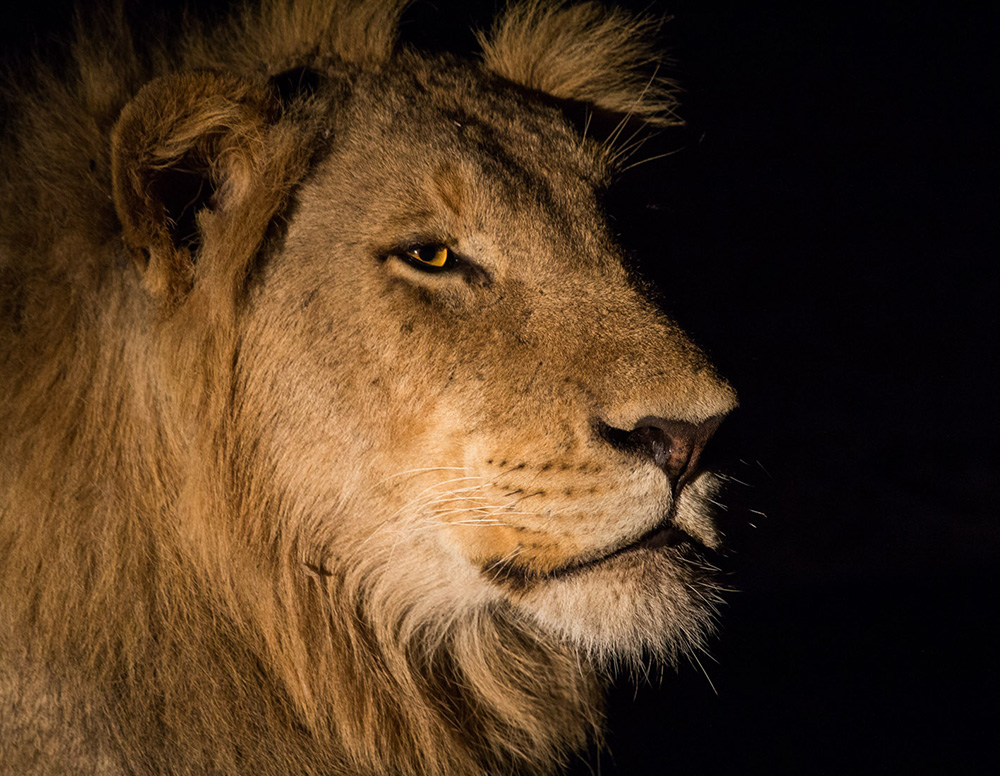The National Council of SPCAs (NSPCA) has lodged an urgent interdict against the Department of Environmental Affairs (DEA) to suspend their authorisation of lion bone exports.

This lion was captured by Leander de Koker in Sabi Sands game reserve, Mpumalanga, on a night drive when they came across a pride of lion. This male lion was gazing thoughtfully at something that he had heard off in the distance. By Leander de Koker.
The organisation has long been actively involved in addressing the cruelty in the captive lion industry; starting with lion cubs for petting to ‘canned lion’ hunting or slaughter for lion bone, with pending cruelty cases.
They believe there are regulatory loopholes and a lack of cooperation and communication from both national and provincial authorities that result in animal cruelty, which they plan to combat.
Following decisions taken at the Conference of the Parties (CoP17) to the Convention on International Trade in Endangered Species of Wild Fauna and Flora (Cites), the late Minister of Environmental Affairs Edna Molewa established an export quota of 800 lion skeletons for 2017.
The NSPCA has requested a judicial review of the quota. While the review process was still underway through the courts, the DEA has gone on to announce a 1500 quota for 2018 which has been criticised by conservation groups for its lack of scientific data.
They are of the view that cruelty to lions is an inevitable consequence of the DEA’s misguided actions and are therefore committed to fighting this decision in court to protect lions.
An urgent interdict based on welfare concerns has been launched. The NSPCA has taken this route because they believe there is inadequate regulation of the lions’ condition of captivity and slaughter and that the Department of Environmental Affairs failed to comply with its statutory duty to consult.
They also believe that lion bone trade may threaten the viability of lion and other big cat populations globally; captive lion ‘farming’ is an industry that has no conservation value and poses a risk to both wild lion, tiger and other big cat populations globally. The lion bone trade has links to transnational wildlife crime syndicates and other wildlife crime.
Also read: Support Trek for Big Cats
You may also like
Related Posts
The Arizona Game and Fish Department (AGFD) is counting the days until the eggs of...
read more
Jock Safari Lodge has formed an official long term partnership with the Wilderness Foundation Africa...
read more
A new campaign, designed to conserve South Africa's shark and ray populations, has been launched....
read more